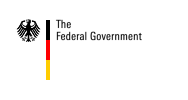- Who is responsible for security during the G8 summit?
- Will there be a security zone around the venue?
- Will the Molli steam railway between Kühlungsborn and Bad Doberan via Heiligendamm continue to run during the summit?
- What traffic restrictions will there be?
- Where might there be traffic restrictions?
- Will there be restrictions on air traffic at Rostock-Laage Airport?
- Will there be restrictions on maritime traffic in the Baltic Sea?
- Where might there be restrictions in connection with demonstrations?
- Who will be liable for personal injury or damage to private or public property, e.g., by demonstrators, in the context of the G8 summit?
- Given the demonstrations to be expected against the summit, is protection to be provided for certain businesses?
- Will commuters be able to travel to and from Bad Doberan without problems?
- Will there be restrictions on tourism in the area around Heiligendamm?
- Should there be restrictions on tourism, who will be liable for any resulting losses?
Who is responsible for security during the G8 summit?
Security during the summit is in the hands of the Mecklenburg–Western Pomerania Police, with support from other forces, and the Federal Police and Federal Office of Criminal Investigation. These three forces are in principle responsible for different areas and different aspects of security, but given that these are all intimately related they will be working very closely together.
Will there be a security zone around the venue?
Yes. A 12-13 km security fence will be erected around Heiligendamm. No other regions will be affected. Only authorized persons will be permitted to enter this outer security zone.
Inside the fence there will be an inner security zone, comprising the grounds of the Grand Hotel Kempinski. There will be no access to this zone for local people.
Will the Molli steam railway between Kühlungsborn and Bad Doberan via Heiligendamm continue to run during the summit?
The Molli-Bahn will not be open to the public during the summit.
What traffic restrictions will there be?
As no traffic plan yet exists, it is impossible to say anything about this at the moment.
Where might there be traffic restrictions?
There may be traffic restrictions in places near Heiligendamm (Kühlungsborn, Bad Doberan). In addition, there may be traffic restrictions in the city of Rostock and around Rostock-Laage Airport.
Will there be restrictions on air traffic at Rostock-Laage Airport?
There will be restrictions, but no details are yet available.
Will there be restrictions on maritime traffic in the Baltic Sea?
Yes, there will be a maritime security zone as well. Its precise nature and extent have not yet been determined.
Where might there be restrictions in connection with demonstrations?
Applications have been received for demonstrations in Rostock. Which of these will actually take place and what routes or locations will be used is not yet known.
Who will be liable for personal injury or damage to private or public property, e.g., by demonstrators, in the context of the G8 summit?
Fundamentally, liability falls on those who cause the damage. It is they who must pay compensation. This applies to both personal injury and damage to property. Civil claims must be pursued through the civil courts.
The police and the courts are making arrangements so that offenders can be dealt with on the spot, both speedily and in accordance with the law.
Given the demonstrations to be expected against the summit, is protection to be provided for certain businesses?
The duty of the police is to defend public safety and public order. Should disorderly demonstrators cause disruption, the police are duty-bound to stop them.
Will commuters be able to travel to and from Bad Doberan without problems?
Commuters will be able to enter and leave Bad Doberan. They must however expect restrictions in the form of closures and access controls.
Will there be restrictions on tourism in the area around Heiligendamm?
Restrictions are also to be expected in the area around Heiligendamm, in the form of identity checks and road closures, as well as inconvenience occasioned by the movement of police units.
Should there be restrictions on tourism, who will be liable for any resulting losses?
The current legal opinion is that such restrictions must in general be accepted. Defending public safety and public order and ensuring the orderly conduct of the G8 summit come first.
Claims for compensation will lie only on proof of so-called "special damage" [Sonderopfer]. The criterion for the recognition of special damage is an encroachment by the public authorities on the legally protected rights to life, health, bodily integrity or freedom.
